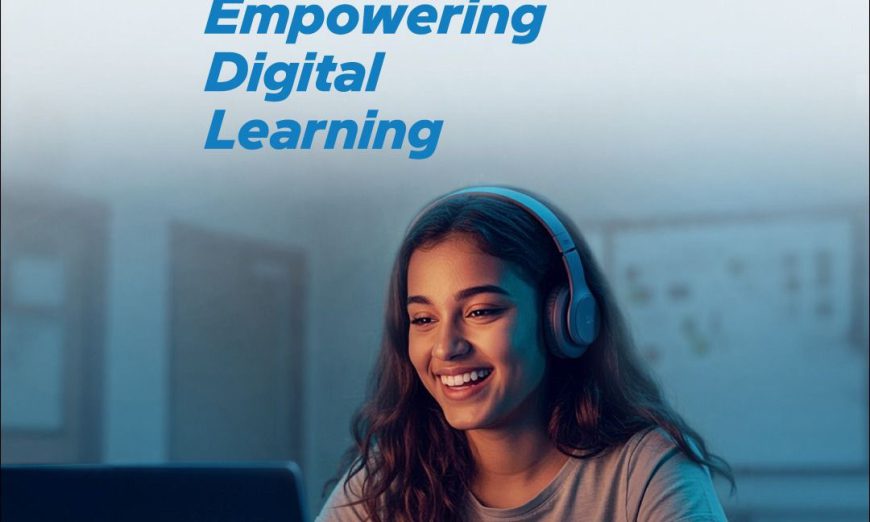Intel, in partnership with The Times of India, today announced the launch of The Learning Curve, a landmark campaign focused on reshaping how Indian parents and educators view the role of technology-particularly PCs and AI-in school education. With over 248 million school students across the country (Economic Survey 2024-25) and persistent gaps in digital infrastructure, this initiative takes on the urgent task of rebuilding trust in technology as an enabler of responsible, personalized learning.
Intel and Times of India Launch The Learning Curve to Bridge Digital Trust Gap in Education
The campaign draws attention to stark disparities in India’s educational ecosystem: only 57.2% of schools have functional computers (UDISE Plus, 2023-24), and a mere 53.9% (UDISE Plus, 2023-24) have internet access. Yet, the pressure on students to succeed academically continues to rise. The Learning Curve leverages real stories, expert insights, and survey data from over 100,000 Indian parents and educators to tackle common fears around screen time, distraction, misinformation, and the perceived replacement of teachers by machines.
The campaign takes root in a significant mindset gap: while many parents acknowledge the benefits of technology, 55% still view AI as potentially risky or harmful to critical thinking. Nearly one in three cite academic stress as a top concern, while 43% are actively seeking expert guidance on how to use technology effectively for their children’s education.
To address these concerns, The Learning Curve is built around three core pillars:
Empowerment Through Education: Positioning the PC as a personalized tutor and productivity partner in a child’s learning journey-from discovery to mastery.
Ethical, Safe Technology Use: Advocating for Intel-powered PCs with parental controls, privacy safeguards, and secure learning environments.
Cultural Relevance & Local Stories: Featuring parenting voices across India, from celebrities like Soha Ali Khan and Kranti Redkar to regional teachers transforming classrooms with tech.
One of the defining features of The Learning Curve is its emotionally grounded storytelling. The campaign features well-known parenting voices such as Soha Ali Khan, Kranti Redkar, and Prithi Ashwin, who reflect on their own children’s evolving learning journeys. From watching their kids engage with interactive educational content to navigating questions around screen time and online safety, these mothers bring authenticity and vulnerability to the conversation. Their stories strike a chord with Indian parents-balancing curiosity with caution, and change with care.
In fact, a striking 66% of parents surveyed believe technology can be a powerful educational ally-if guided well. This highlights that the barrier isn’t belief in tech itself, but a lack of clarity and trusted direction. The Learning Curve aims to bridge this gap with credible voices and real-world stories that show what responsible, effective tech use can actually look like.
These stories will include voices from the education frontlines, such as Ranjitsinh Disale, the Global Teacher Prize 2020 winner known for transforming rural classrooms through innovative, tech-enabled teaching methods. Disale, who famously introduced QR-coded textbooks in a government school in Maharashtra, lends his expertise to advocate for meaningful tech integration in classrooms. His participation underscores the campaign’s belief that the right tools-used mindfully-can democratize learning, boost accessibility, and empower both teachers and students to achieve more.
Aligned with national policy frameworks such as the National Education Policy (NEP 2020) and global calls for digital inclusion, The Learning Curve complements India’s push toward future-ready education. With the AI-in-education market expected to grow at around 40% CAGR in Asia-Pacific, Intel is investing in campaigns that not only address access but also perception and trust.
From expert-led videos to myth-busting explainers and regional-language guides, The Learning Curve offers a dynamic mix of content in English, Hindi, Marathi, and Tamil-crafted to challenge assumptions and spark fresh thinking about tech in education. Now streaming across TOI’s digital platforms and social channels, these stories and insights invite audiences to explore how AI-powered PCs are quietly transforming learning across India. Dive into the conversation at www.thelearningcurve.ai.
Santhosh Viswanathan, Managing Director of Intel India, emphasizes the urgent need for both infrastructural and attitudinal change in education: “Technology is now the bedrock of education. It’s democratising access to learning, enabling personalised experiences, and connecting students and educators like never before. At Intel, we align with UNESCO’s view that digital technologies are evolving into integrated networks, forming the infrastructure of modern learning.To truly harness this power, we must prioritise areas like digital infrastructure, AI-based learning tools, and intelligent tutoring systems. However, we also need a critical mindset shift. Computers are still seen as distractions, and rote learning is deeply ingrained. With only 57% of Indian schools equipped with functional computers and 53% with internet access (as per the UDISE report), this gap must be urgently addressed.”
Intel’s long-standing commitment to inclusive innovation and ecosystem development continues to drive its work in India. Through collaboration with local partners and institutions, the brand aims to build the infrastructure, awareness, and capabilities needed to make every child’s learning journey truly limitless.
Intel’s vision for education in India is rooted in the belief that technology, when thoughtfully deployed, can be a powerful equalizer. With only about half of the schools having functional computers, Intel is committed to bridging this digital divide while transforming mindsets around tech-enabled learning. The company envisions a future where every child has access to an AI-powered PC-serving not as a distraction, but as a personalized tutor and productivity partner. By fostering digital literacy, enhancing infrastructure, and championing safe, responsible use of technology, Intel aims to unlock every student’s potential and equip them with the skills needed to thrive in the AI age.

